- Home
- Lindsay Buroker
Star Nomad Page 2
Star Nomad Read online
Page 2
“The rust bang was insulated.”
“How?”
“It went off in his pants.”
“Ah. How did it get in there?”
“Must have fallen in.” Mica’s typically dour expression faded for a moment as she winked. “You rolling around in the dust and shooting people was a suitable distraction for it to do so.”
“Glad to hear it.”
Alisa managed a brief smile, amused that she had been worried her ally couldn’t take care of herself.
Lights flashed on the rocky ceiling far overhead, and the sounds of excited shouts grew closer. Shoes pounded in the dust nearby, reminding Alisa that they had made a lot of noise.
She turned her walk into a run, veering toward an aisle choked with piles of parts and some kind of vine that had no trouble growing in the dark. Though she worried that the half-starved brutes who called this place home would catch up with them, she felt more sure of her route now. The aisle had been a road the last time she’d been in here, with the place slightly more organized back then, and with fewer corpses along the way.
A gun fired behind them, and the sounds of a squabble broke out. Alisa hoped the scavengers would be satisfied that they could search—or eat—Spider’s corpse and wouldn’t look further, but she didn’t slow down. She couldn’t count on that, nor could she count on safety once she reached the Star Nomad. It had been inches from derelict status when she’d seen it last; the Suns Trinity only knew what condition it was in now. She was probably delusional to believe that Mica and her toolbox could fix it.
As they neared the back of the massive cavern, the shouts growing distant behind them, Alisa finally slowed down. Her lungs forced her to, even if her brain didn’t want to acknowledge the need. It was just as well. They ought to return to proceeding with caution.
“Is that it?” Mica whispered, pointing past Alisa’s shoulder.
They had reached another clearing, this one with a slender beam of daylight slashing down from a hole in the cavern ceiling. It provided just enough illumination to make out the hulls of four ships parked around the area. Grease and oil stains smeared the dusty ground in the open space, suggesting a fifth ship had rested there once. If one craft had flown out of here, Alisa hoped that meant another one could.
She stopped to stare at the familiar shape on the far side of the clearing, a tangle of emotions and memories washing over her. This ship had been responsible for her mother’s death, and six years hadn’t changed Alisa’s feeling of aversion toward it. Aversion and resentment. The clunky old freighter was even less impressive than she’d remembered.
The Nomad hadn’t been a beauty even in her heyday, and now dust dulled it further, coating every inch of the boxy hull while cobwebs draped the twin thrusters. Shadows hid the top and the front of the craft from her view, but she knew they would be equally neglected. She and Mica would have to assess the hull carefully, see if it was possible to make the craft spaceworthy again. Alisa ought to be able to advise her engineer on that. She certainly knew the Nomad well enough. Long before her mother’s death, Alisa had grown up on the ship, learning to fly and helping her mother run cargo from planet to moon to space station throughout the system. Under the empire’s rule, her mother had been forced to pay taxes and tolls at each port and had barely eked out enough of a profit to keep her ship in the sky and her daughter fed. But through sheer determination, she had kept Alisa fed. She had been a good mother—a good person—and emotion thickened Alisa’s throat as the years seemed to slip away, and she missed her anew. And she once again resented that the old ship had given out without warning, life support disappearing, her mother unable to—
“Captain?” Mica asked.
Alisa stirred, pushing aside the memories. “Yes. That’s it.”
She took a deep breath and walked through the dust toward the craft. She went slowly, looking left and right as she crossed near the light of the sunbeam. Just because they had left the other scavengers behind didn’t mean there couldn’t be more back here. The hatch was closed on the old freighter, the wide cargo-loading ramp folded away inside.
A bronze plaque had been bolted to the hull next to the hatch. It was too dusty to read, but she knew what it said: Property of Finnegan’s Scrap and Holding Company.
She had been there the day old Finnegan had affixed it, the day she sold the ship to him. Even if she had been grossly underpaid by the unscrupulous businessman, Alisa hadn’t been in the mood to argue back then, not with her mother’s death fresh in her mind. Still, she knew she couldn’t use that for justification of what she meant to do now. Steal it.
But Finnegan had died in the bombings of Dustor’s nearby capital—she’d researched that when formulating this plan—and nobody had come out to claim this junkyard in the year that had passed since then. People had likely been stealing from it for months, ever since the security guards had quit patrolling and the lowlifes had moved in.
As she neared the hatch, a growl came from under one of the other ships. As she turned to look, something furry with a spiky ridge along its back burst out of the shadows. A sand badger. Forty pounds of fangs, fur, and bad temperament. It sprinted straight at her, snarling.
Alisa whipped her Etcher toward it and was an instant from shooting when she remembered the need to be quiet. If she fired, the noise would only draw more scavengers, and she couldn’t simply run and hide now. They had to stay here long enough to fix the Nomad and get it flying.
Jerking the gun up, Alisa met the giant badger’s charge with a side kick instead of a bullet. She pivoted on her left foot, launching her right toward the thing’s bristly snout, glad the hospital had returned her sturdy boots to her upon release. The sole crunched into the badger’s face, halting its charge but not its ferocity. It twisted its neck, snapping at her leg as she retracted it. She launched a second kick without setting down her foot. This time, it saw the attack coming and scuttled to the side more quickly than something with such short legs should have been able to.
As she danced away from another charge, Alisa yanked her multitool off her belt, flicking it to extend the laser knife. Mica ran in behind the creature, an oversized wrench in hand. When Alisa kicked the badger in the snout again, Mica lunged in and clubbed it in the back. The blow probably didn’t do much harm, but it made the sand badger spin around, its spiked tail nearly whipping Alisa in the leg. The creature snarled and charged toward Mica, who scrambled back as she waved the wrench back and forth like a fencer’s foil.
Alisa sprang after the badger, slashing with the laser knife. It cut through the spiked tail, lopping it off and eliciting a squeal of pain from the animal.
She winced at the noise and darted in, hoping to finish it off, but the badger was done fighting. It scurried back into the shadows, leaving a trail of blood in the dust.
Alisa let it go, doubting she could have caught it anyway. As she stood, gun in one hand and multitool in the other, she tried to slow her breathing so she could listen and hear if anyone was coming. All that filled her ears was the sound of her own ragged breaths. She hadn’t recovered her stamina yet, and it annoyed her how long it took for her breathing to return to normal.
Mica returned her wrench to her toolbox and joined her. “Remember how skeptical I was when you told me that if I joined you, we’d find a ship that could take us back to civilization?”
“Yes.” Alisa flicked the multitool again, retracting the laser blade and sticking it back in her belt sheath.
“I wasn’t skeptical enough.” Mica curled a lip at the bloody stump of badger tail lying in the dust, then looked at the freighter and curled her lip even further. “A Nebula Rambler 880? They stopped making those fifty years ago.”
“That just means it’s a classic,” Alisa said, though she couldn’t help but remember how her mother had died and shudder. The ship had gone from feeling like home to a cemetery overnight for her.
But it was the only ship she was going to find that nobody else had a claim on
and that might still be spaceworthy. Assuming they could fix it. And assuming it had enough juice left in the battery to open the hatch so they could get in. She wondered if it would still recognize her as an authorized entrant.
“Yeah?” Mica asked. “Does it have shag carpet?”
“Just in the rec room.”
Mica snorted.
Alisa reached for the sensor panel beside the hatch.
A shadow dropped from the sky.
She sprang back, jerking her gun toward the figure that landed beside her. A hand, an impossibly strong hand, clamped onto her wrist, squeezing until she gasped, her fingers loosening. Her gun was torn from her grip, and she was thrust backward before she could contemplate a kick or a punch.
The force of the thrust stole her balance, and she tumbled to the ground. Though she managed to turn the fall into a roll and come up in a crouch a few feet away, it didn’t matter. She’d lost her Etcher, and she was too far away to use the laser knife. Not that it would have mattered. Dread filled her as she recognized her opponent—and the fact that he was pointing her own gun at her.
Chapter 2
He was a cyborg.
Oh, he looked fully human, with icy blue eyes, a strong jaw in need of shaving, and black hair even more in need of cutting, but humans didn’t jump thirty feet from the top of a spaceship, land on their feet next to a person, and proceed to attack so quickly that an Alliance officer with combat training didn’t have time to react. If there had been any question about his enhanced capabilities, the dusty black imperial fleet uniform jacket that he wore would have eliminated them. The rank pins had been removed from the collar, but the front of it was covered with patches that denoted a deluge of training, everything from atmo-parachuting to weapons and demolitions expertise. There was also a round patch with a fist over a sword and a shield. The symbol for the Cyborg Corps.
Alisa had lost colleagues to the Cyborg Corps during the war, and like all Alliance soldiers, she had heard the rumors that they had been responsible for the assassinations of many of their top brass and several political leaders. This cyborg wasn’t young—he had a few gray hairs at his temples—so he had probably been a senior sergeant. He might even have led some of those assassination teams.
There was no warmth in the eyes that stared relentlessly into hers, and they were uncomfortably knowing, as if he could read her mind. Not likely—she had never heard of a cyborg with Starseer capabilities—but that didn’t make her feel any better.
“You’ll have to get him to turn around,” Mica said.
She stood several feet away, her toolbox still in hand. The cyborg hadn’t pointed a weapon at her. Yet.
“What?” Alisa asked, never taking her gaze from her enemy.
She didn’t know what she could do if he decided to shoot—his reflexes and aim would be a lot better than those of the wiry thug they had left burning—but she would face him, regardless, keep her chin high. Whatever skills and abilities he possessed, his side had lost the war. Her people, comprised only of full-blooded humans, had won.
“You know,” Mica said, “so I can club him in the back like I did the badger.”
“Ah,” Alisa said, watching the cyborg’s face, looking for some hint that he might appreciate their humor—or at least that he wasn’t contemplating killing them.
She rose slowly from her crouch, not liking the way he could look down at her. Unfortunately, he still looked down at her. She wasn’t a short woman, standing a couple of inches shy of six feet, but he still had six or eight inches on her. The breadth of his shoulders and solidness of his limbs made her sure he would have been an intimidating man even without the cyborg implants. The imperial fleet doctors had probably loved getting their hands on him.
He tracked her movement, his gaze flicking downward briefly, taking in her uniform jacket, she suspected, not checking out her boobs. He wasn’t the only one wearing signs of his last career. Though her faded trousers and shirt weren’t anything remarkable, she wore the same jacket she had worn throughout the war, a mottled blue and gray Alliance military jacket. She didn’t have as many patches as he did, but the one on her left breast proclaimed her a combat pilot. He might even now be wondering if she’d blown up some of his buddies. She wouldn’t be surprised if she had, but it would have been from the cockpit of her Striker-18, not from the ground.
“Go away,” the cyborg said, his voice as hard as his eyes.
Mica looked at her, her brows rising in surprise. She wore civilian clothes, and the cyborg had barely glanced at her, but she must have noticed him checking out Alisa’s uniform jacket. Maybe she’d expected him to shoot her.
Honestly, Alisa had expected it too. In the weeks she had been out of the hospital, she’d noticed that the end of the war hadn’t meant an end in hostilities, not here on a planet that housed both former Alliance and former imperial soldiers, many squabbling over what was no longer claimed or defendable by law.
“Go away?” Alisa asked, not because she hadn’t understood him but because she couldn’t go away. She had come for the ship he was standing in front of, and she wouldn’t leave without it. Would it be better to admit that and try to bargain with him, or to hide in the shadows and watch from a distance, hoping he would leave eventually? “We just got here. We’re interested in…”
She trailed off because the cyborg had turned away from her. He waved his hand at the sensor she had been angling toward earlier, and a hiss-clunk sounded as the hatch opened, and the ramp inside unfolded in three stages, the end coming to rest on the ground.
She didn’t know whether she was more indignant that he’d dismissed her as a non-threat by turning his back or because he’d somehow gained access to the ship. The latter wasn’t all that hard, but it did suggest computer knowledge she wouldn’t have expected from a ground soldier, cyborg or not. They were usually combat specialists and not much more.
He tossed her gun at her feet and stepped onto the ramp, clearly intending to go inside and shut the hatch on them.
“Wait,” Alisa blurted. She ran and picked up her gun and started toward the ramp. “We came to—”
She halted mid-sentence again, this time because he’d paused, turning back toward her, another weapon in hand. His weapon, this time. A single-barreled destroyer, a handgun that had the nickname “hand cannon” for a reason. It was the first thing in the cavern she had seen that wasn’t dusty and neglected, and it was pointing between her eyes.
“I said, go away,” the cyborg said, his tone and his narrowed eyes promising that he would shoot if she lifted her gun toward him or tried to follow him.
“I can’t,” Alisa said, though she probably should have opted for her earlier thought of hiding and simply waiting for him to leave. But it would take days for Mica to fix the ship, if not weeks, and if he was squatting here, they would have to deal with him one way or another. “We need this ship.” She waved to the Star Nomad, careful to use the hand that wasn’t holding the Etcher. That she kept pointed toward the ground.
“It’s mine,” he said.
“Technically, it’s Finnegan’s,” Alisa said, wondering if he knew anything about the junkyard or the history of the place.
“He’s not here. I am.”
“Look, we plan to fix it.” Alisa didn’t know how wise it was to share their plans, but she waved at Mica and her toolbox anyway. “I’ll happily trade you that lovely ship over there for this one. It’s bigger. I happen to know the living quarters are cramped on this freighter. All of the extra space went to the cargo hold. You’ll find that ship over there much more palatial. You’re a tall fellow, right? Surely a little more headroom would be desirable. My friend there could even fix it up for you, perhaps put in some sparkly lights and heated bunks. You can bring back the ladies and impress them with your fancy lodgings.”
She thought a little humor might draw the cyborg into a conversation—or at least a negotiation—but if anything, his eyes grew even harder at the talk of ladies and lodgin
gs.
“You make me sound like a contractor that builds brothels,” Mica muttered.
“You’re versatile. I’ve seen your work.”
The cyborg turned his back and started up the ramp again, but some new thought must have occurred to him because he paused and pinned Mica with his cool stare. “You’re a mechanic?”
“An engineer. I served in—”
Alisa made a shushing motion. The cyborg already knew what she was, but it would be better not to increase his ire by letting him know Mica had been an Alliance officer too. If he was unaware of that, maybe he would be open to working a deal with her, if not Alisa.
“She’s a mechanic and an engineer,” Alisa said. “She can fix anything. Got a creak in any of your mechanical parts? I bet she can even fix you.”
The cyborg’s eyes narrowed again.
“Your jokes aren’t helping as much as you seem to think they are,” Mica whispered to her. “I believe he’s going to shoot you.”
Alisa thought about mentioning how charming Mica’s pessimism was, but was afraid she was right. Instead of trying to be funny, Alisa met the cyborg’s eyes and decided to make a plea toward his humanity, if he had any.
“Please listen to me for a moment, Sergeant, is it?” she guessed. He definitely had the look of a no-nonsense veteran, and she hadn’t run into many officers among the Cyborg Corps—despite being willing to use cyborgs, the imperial fleet had always seemed to prefer fully human officers in leadership positions. When he didn’t respond to her guess, Alisa pressed on. “This ship used to belong to me. I know it from nose to tail, because I grew up on it. I brought Mica here to see if we can get it fixed up and into the air. As you might have noticed, rides off this planet are scarce right now.”
Alisa figured he had been stranded here after the war, too, left behind because of an injury or perhaps just left behind because there had been nobody left to look after—and pay—the soldiers in the imperial fleet.

 Beneath the Surface
Beneath the Surface Dark Currents
Dark Currents The Dragon Blood Collection, Books 1-3
The Dragon Blood Collection, Books 1-3![Hunted [The Flash Gold Chronicles] Read online](http://i1.bookreadfree.com/16/hunted_[the_flash_gold_chronicles]_preview.jpg) Hunted [The Flash Gold Chronicles]
Hunted [The Flash Gold Chronicles]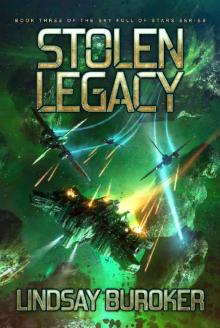 Stolen Legacy
Stolen Legacy Snake Heart
Snake Heart Shattered Past
Shattered Past Star Nomad
Star Nomad Patterns in the Dark
Patterns in the Dark Torrent
Torrent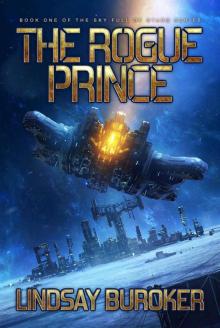 The Rogue Prince
The Rogue Prince Forged in Blood II
Forged in Blood II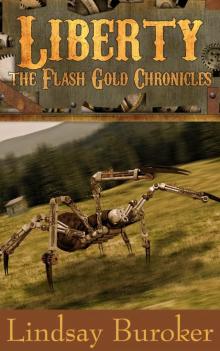 Liberty
Liberty The Fowl Proposal Bonus Scenes
The Fowl Proposal Bonus Scenes Forged in Blood I
Forged in Blood I Soulblade
Soulblade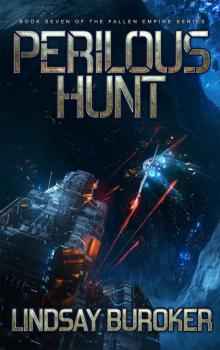 Perilous Hunt
Perilous Hunt 05 Dragon Blood: The Blade's Memory
05 Dragon Blood: The Blade's Memory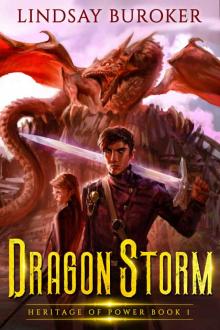 Dragon Storm
Dragon Storm The Goblin Brothers Adventures
The Goblin Brothers Adventures Republic
Republic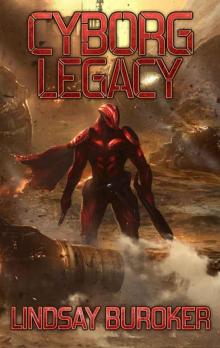 Cyborg Legacy
Cyborg Legacy Origins
Origins Beginnings: Five Heroic Fantasy Adventure Novels
Beginnings: Five Heroic Fantasy Adventure Novels Warrior Mage
Warrior Mage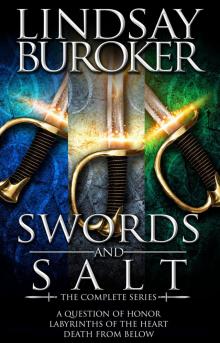 Swords and Salt - the Complete Series
Swords and Salt - the Complete Series 6.0 - Raptor
6.0 - Raptor Destiny Unchosen
Destiny Unchosen Balanced on the Blade's Edge
Balanced on the Blade's Edge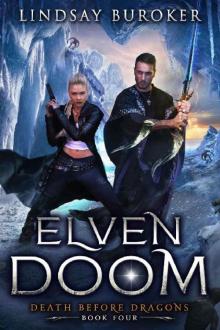 Elven Doom (Death Before Dragons Book 4)
Elven Doom (Death Before Dragons Book 4)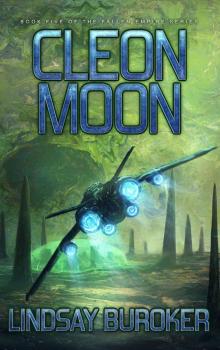 Cleon Moon
Cleon Moon Oaths (Dragon Blood, Book 8)
Oaths (Dragon Blood, Book 8)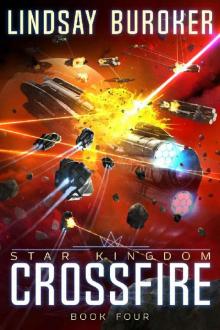 Crossfire (Star Kingdom Book 4)
Crossfire (Star Kingdom Book 4) Dragon Tear (Agents of the Crown Book 5)
Dragon Tear (Agents of the Crown Book 5) Encrypted
Encrypted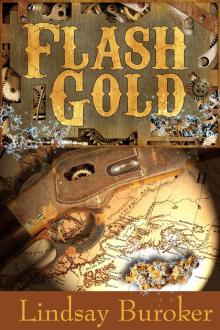 Flash Gold
Flash Gold Enigma
Enigma_preview.jpg) Shadows Over Innocence (an Emperor's Edge short story)
Shadows Over Innocence (an Emperor's Edge short story) Decrypted
Decrypted Mist and Magic
Mist and Magic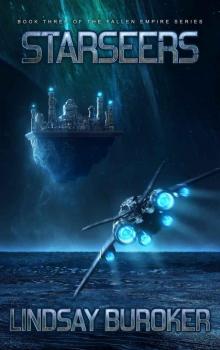 Starseers
Starseers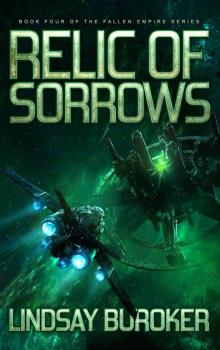 Relic of Sorrows
Relic of Sorrows Blood and Betrayal
Blood and Betrayal Diplomats and Fugitives
Diplomats and Fugitives_preview.jpg) Balanced on the Blade's Edge (Dragon Blood, Book 1)
Balanced on the Blade's Edge (Dragon Blood, Book 1) The Emperor's Edge, no. 1
The Emperor's Edge, no. 1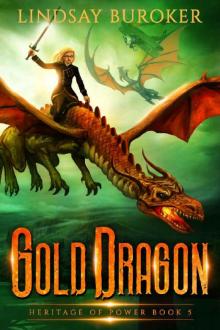 Gold Dragon
Gold Dragon Duty Bound
Duty Bound Secrets of the Sword 2 (Death Before Dragons Book 8)
Secrets of the Sword 2 (Death Before Dragons Book 8) Peacemaker
Peacemaker Short Stories from the Star Kingdom
Short Stories from the Star Kingdom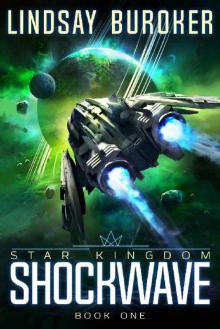 Shockwave
Shockwave Degrees of Delusion
Degrees of Delusion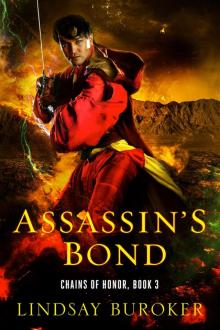 Assassin's Bond (Chains of Honor, Book 3)
Assassin's Bond (Chains of Honor, Book 3)_preview.jpg) The Emperor's Edge (a high fantasy mystery in an era of steam)
The Emperor's Edge (a high fantasy mystery in an era of steam)_preview.jpg) Solstice Day Gifts (an Emperor's Edge Short Story)
Solstice Day Gifts (an Emperor's Edge Short Story) Fractured Stars
Fractured Stars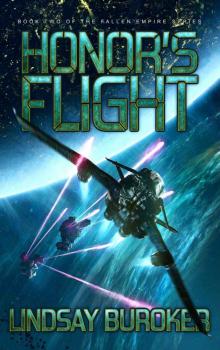 Honor's Flight
Honor's Flight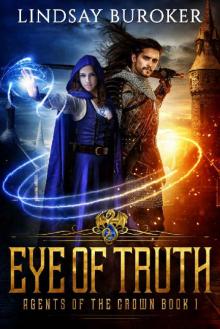 Eye of Truth
Eye of Truth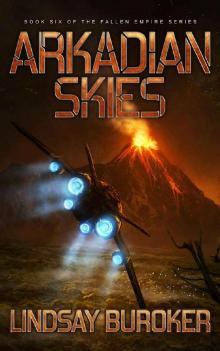 Arkadian Skies
Arkadian Skies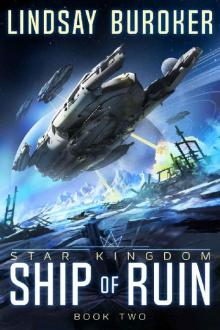 Ship of Ruin
Ship of Ruin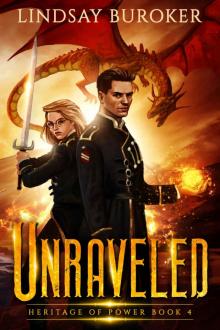 Unraveled
Unraveled Blood Ties
Blood Ties Great Chief
Great Chief End Game
End Game Conspiracy
Conspiracy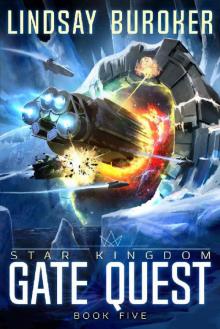 Gate Quest (Star Kingdom Book 5)
Gate Quest (Star Kingdom Book 5) Claimed
Claimed Under the Ice Blades
Under the Ice Blades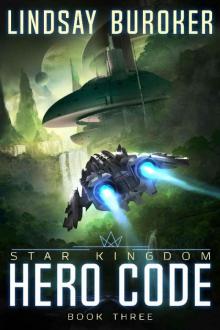 Hero Code
Hero Code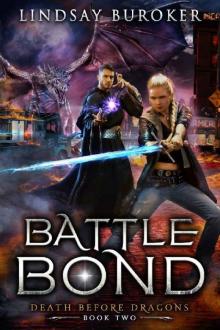 Battle Bond: An Urban Fantasy Dragon Series (Death Before Dragons Book 2)
Battle Bond: An Urban Fantasy Dragon Series (Death Before Dragons Book 2) Blood Charged
Blood Charged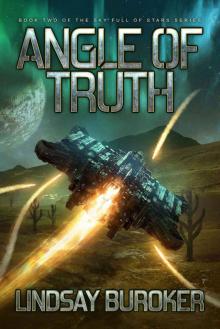 Angle of Truth
Angle of Truth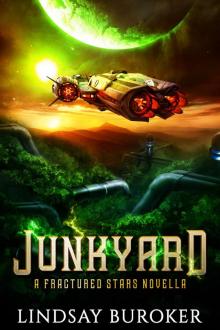 Junkyard
Junkyard Agents of the Crown- The Complete Series
Agents of the Crown- The Complete Series Planet Killer (Star Kingdom Book 6)
Planet Killer (Star Kingdom Book 6) Shadows Over Innocence
Shadows Over Innocence Forged in Blood I ee-6
Forged in Blood I ee-6 Sinister Magic: An Urban Fantasy Dragon Series (Death Before Dragons Book 1)
Sinister Magic: An Urban Fantasy Dragon Series (Death Before Dragons Book 1) Blood and Betrayal (The Emperor's Edge Book 5)
Blood and Betrayal (The Emperor's Edge Book 5) Smuggler Ship
Smuggler Ship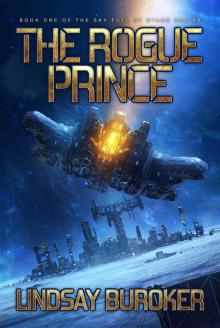 The Rogue Prince (Sky Full of Stars, Book 1)
The Rogue Prince (Sky Full of Stars, Book 1)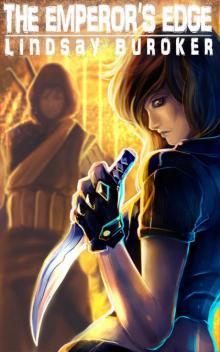 The Emperor's Edge (a high fantasy adventure in an era of steam)
The Emperor's Edge (a high fantasy adventure in an era of steam) Great Chief (Chains of Honor, Book 4)
Great Chief (Chains of Honor, Book 4) Hunted fgc-2
Hunted fgc-2 Shadows Over Innocence (emperor's edge)
Shadows Over Innocence (emperor's edge)![[Fallen Empire 00.5 - 03.0] Star Nomad Honor's Flight Starfall Station Starseers Last Command Read online](http://i1.bookreadfree.com/i/03/22/fallen_empire_00_5_-_03_0_star_nomad_hon_starfall_station_starseers_last_command_preview.jpg) [Fallen Empire 00.5 - 03.0] Star Nomad Honor's Flight Starfall Station Starseers Last Command
[Fallen Empire 00.5 - 03.0] Star Nomad Honor's Flight Starfall Station Starseers Last Command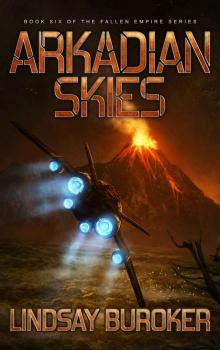 Arkadian Skies: Fallen Empire, Book 6
Arkadian Skies: Fallen Empire, Book 6 Enigma (emperor's edge)
Enigma (emperor's edge) Diplomats and Fugitives (The Emperor's Edge Book 9)
Diplomats and Fugitives (The Emperor's Edge Book 9)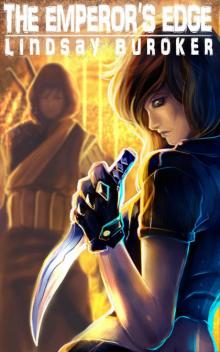 The Emperor's edge tee-1
The Emperor's edge tee-1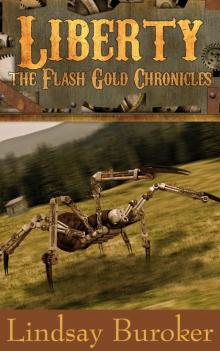 Liberty (Flash Gold, #5)
Liberty (Flash Gold, #5)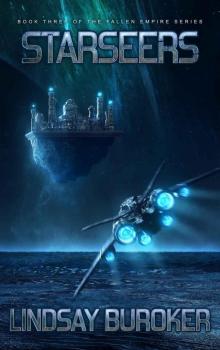 Starseers: Fallen Empire, Book 3
Starseers: Fallen Empire, Book 3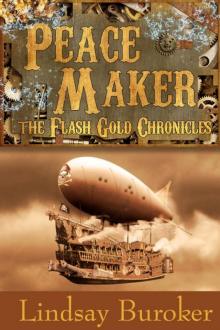 Peacemaker fgc-3
Peacemaker fgc-3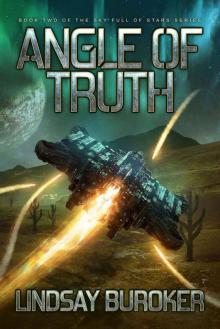 Angle of Truth (Sky Full of Stars, Book 2)
Angle of Truth (Sky Full of Stars, Book 2)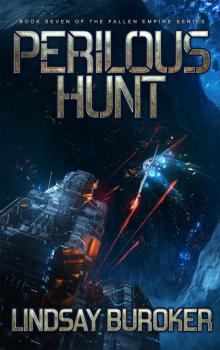 Perilous Hunt: Fallen Empire, Book 7
Perilous Hunt: Fallen Empire, Book 7 Ice Cracker II (emperor's edge)
Ice Cracker II (emperor's edge) Conspiracy (The Emperor's Edge Book 4)
Conspiracy (The Emperor's Edge Book 4) Decrypted (Encrypted #2)
Decrypted (Encrypted #2) Forgotten Ages (The Complete Series)
Forgotten Ages (The Complete Series) You Are Here: Tales of Cartographic Wonders
You Are Here: Tales of Cartographic Wonders Duty Bound (Agents of the Crown Book 3)
Duty Bound (Agents of the Crown Book 3) Snake Heart (Chains of Honor Book 2)
Snake Heart (Chains of Honor Book 2) Conspiracy ee-4
Conspiracy ee-4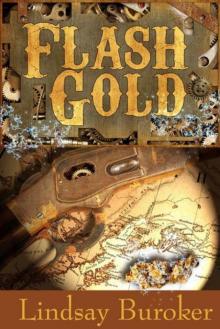 Flash Gold fgc-1
Flash Gold fgc-1 Fallen Empire 1: Star Nomad
Fallen Empire 1: Star Nomad Claimed (The Flash Gold Chronicles, #4)
Claimed (The Flash Gold Chronicles, #4) Ice Cracker II (and other short stories) (The Emperor's Edge)
Ice Cracker II (and other short stories) (The Emperor's Edge)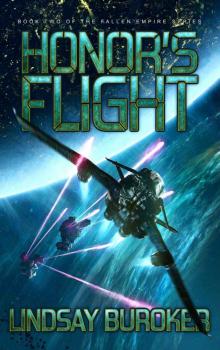 Fallen Empire 2: Honor's Flight
Fallen Empire 2: Honor's Flight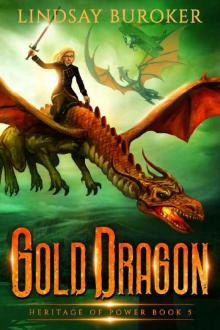 Gold Dragon (Heritage of Power Book 5)
Gold Dragon (Heritage of Power Book 5) Encrypted (the emperor's edge)
Encrypted (the emperor's edge)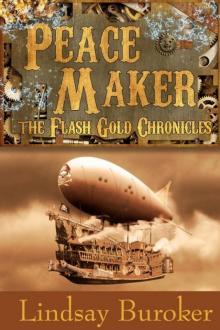 Peacemaker (The Flash Gold Chronicles, #3)
Peacemaker (The Flash Gold Chronicles, #3) Patterns in the Dark (Dragon Blood Book 4)
Patterns in the Dark (Dragon Blood Book 4)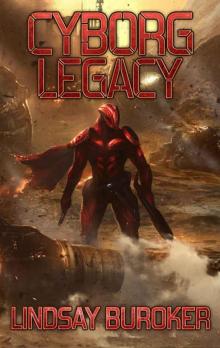 Cyborg Legacy: A Fallen Empire Novel
Cyborg Legacy: A Fallen Empire Novel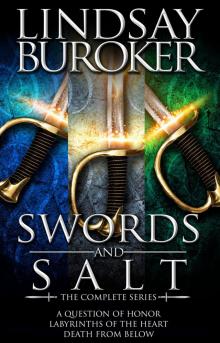 The Swords & Salt Collection
The Swords & Salt Collection Blood and Betrayal ee-5
Blood and Betrayal ee-5 The assassin curse
The assassin curse Warrior Mage (Book 1)
Warrior Mage (Book 1) Forged in Blood II ee-7
Forged in Blood II ee-7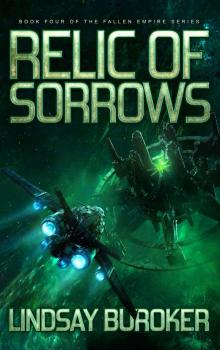 Relic of Sorrows: Fallen Empire, Book 4
Relic of Sorrows: Fallen Empire, Book 4 Deadly Games ee-3
Deadly Games ee-3 Elven Fury (Agents of the Crown Book 4)
Elven Fury (Agents of the Crown Book 4) Torrent rar-1
Torrent rar-1